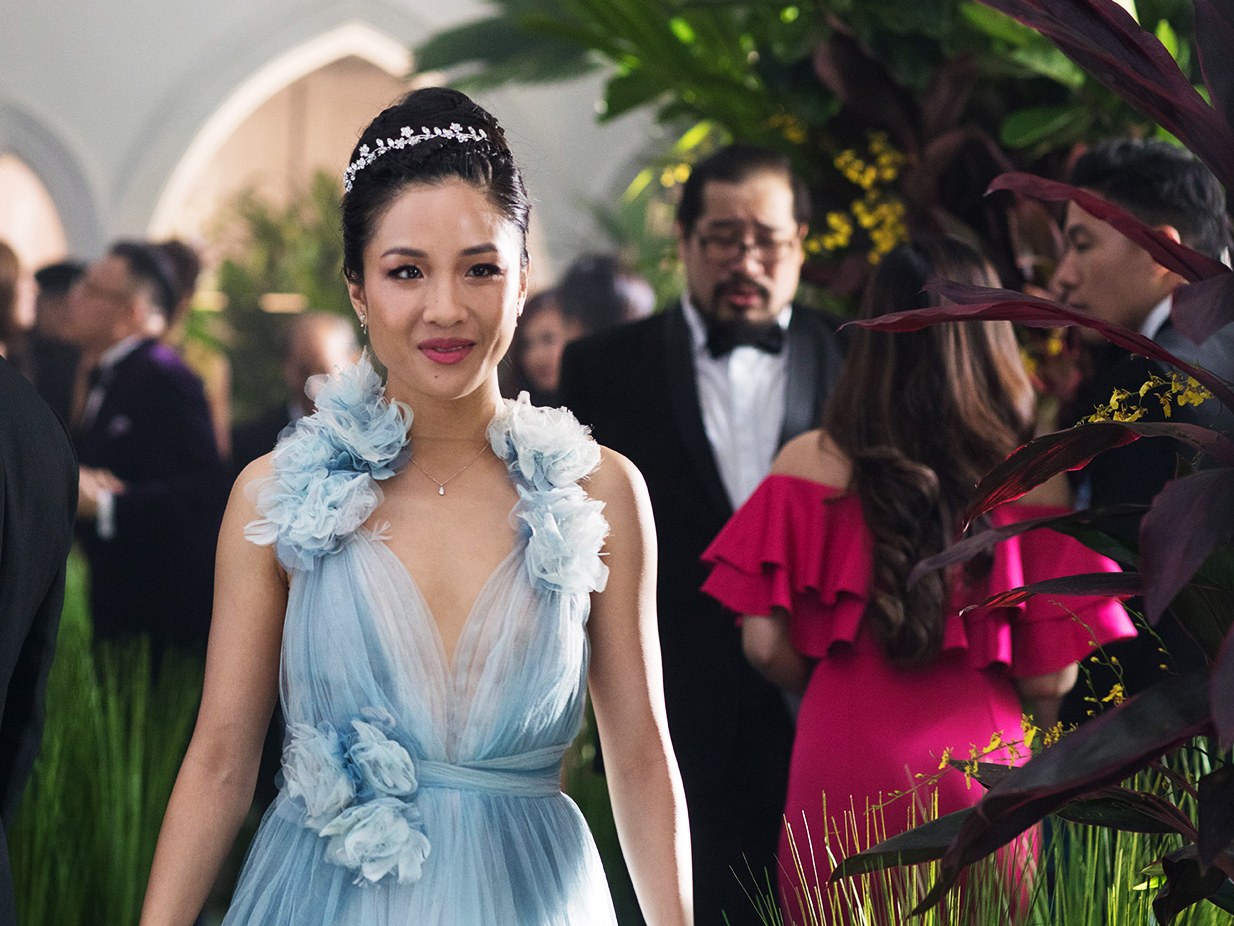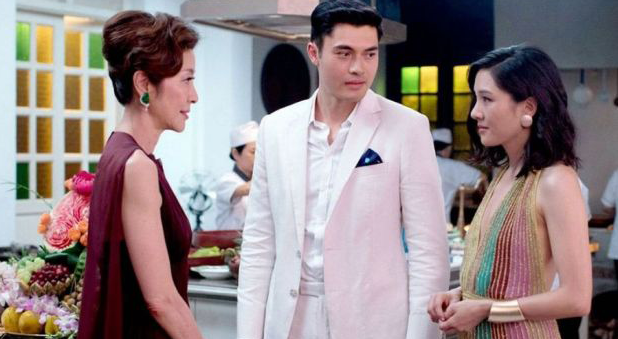It’s a romantic comedy with a dash of drama, and an array of well-drawn characters that show us the gamut of humanity in much the same way a rom-com set in New York might do. And, what is more, it provides plenty of laughs along the way.
Based on the successful novel of the same name by Kevin Kwan, Crazy Rich Asians follows the story of Rachel Chu (Constance Wu), a young economics professor at New York University. Her boyfriend of the past year, Nick Young (Henry Golding), invites her to come to his best friend’s wedding in Singapore, not only as his date but also to meet his family.

What Rachel doesn’t know until they’re on the way is that Nick’s family is exceedingly wealthy. He’s one of the most eligible bachelors in Asia and, once they’re in Singapore, almost everyone is looking Rachel over and making judgments about her value (or lack of it) based on what they see. And she needs to learn how to fight back – with care.
Nick’s mother Eleanor, played with exquisite poise and grace by Malaysian actress Michelle Yeoh, is Rachel’s biggest roadblock as she is politely but firmly set against her from the outset.
A word from the Bible
Interestingly, the first time we meet Eleanor, she and a group of friends are holding a Bible study. Eleanor is reading the first verses of Colossians 3, with its exhortation for believers to “set their minds on things above, not on earthly things”. It’s hardly a coincidence, as we then see just how quickly she and her friends do the exact opposite when word comes through their phones that Nick has been seen in New York with a girl. Will she be coming to the wedding? Is she a good Christian girl?
Eleanor’s brief suggestion that they return to the word is soon put to one side as – like any over-invested mother – she calls her son to find out the truth of the rumour.
Worldly concerns are chosen first, and you know before Rachel sets foot in the country that she’s got her work cut out for her.
Rachel’s own mother, a mainland Chinese who migrated to the US, sees the troubles coming, explaining to Rachel that she might be able to speak the language and look like the others in Singapore, but in her head and heart she’s American.
Human worth is not based on what we own
So, the stage is set for cultural lessons and misunderstandings on both sides, and – amid the crises surrounding the film’s central relationship – a heck of a lot of fun. A number of the support cast are comedians and they’re great at sending up elements of modern Asian culture, the crassness of the nouveau riche and rampant commercialism, plus the inherent comedic possibilities in a number of situations that arise. A particular standout is rapper/actress Awkwafina as Rachel’s college friend Piek Lin, who is able to make almost any scene fizz and pop with her character’s wisecracking observations.
Our hero, Nick (who Piek Lin pithily calls “the Asian Bachelor”), is self-effacing and unconcerned about flaunting his wealth, and some of his cousins and friends are also approachable and accepting. Yet, once we’re on the ground in Singapore we discover just what “crazy rich” looks like, especially at a wedding. It’s over the top in every sense of the word, from the family parties to stag and hen parties, from jewels to designer clothes and from bitchiness to… well… epic bitchiness.
Conspicuous consumption
However, despite the very conspicuous consumption, the careful crafting of the story makes it possible to identify with many of the characters – even those we may not like much. And this is the key to (what should be) the success of Crazy Rich Asians, because behind the wealthy facade they are just like us.
They are human beings who need love and feel hurt, want solid friendships and relationships that last, and protect those close to them with a ferocity that sometimes oversteps the mark.
There is some innuendo but very little swearing, and definitely a lot of heart. In a fairly uncomplicated, Cinderella-style tale we’re shown a window into a range of Asian cultural attitudes, old and new. And while, by the movie’s end, the characters don’t seem any closer to understanding that they should set their minds on things above, the message is very clear that human worth is not, and never should be, rated by where we come from, who we know or what we own.





















